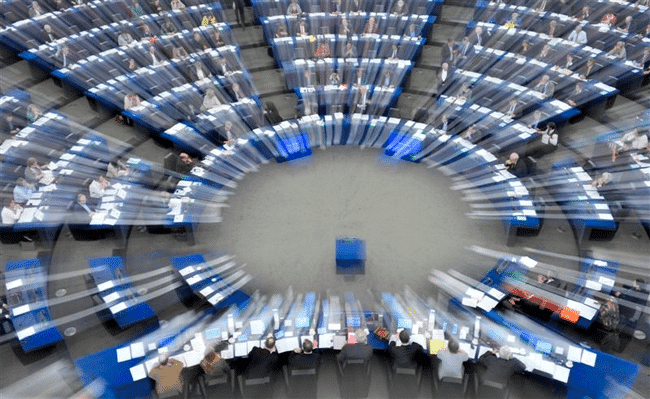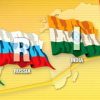
Europe needs to change, to reinvent itself. That is the message of the European elections. Towards another Europe, a combination of more Europe in some ways, less in others, and especially, a better Europe. But the election results are discouraging. Progress will be held back by the low turnout, which is inversely proportional to the power gained by the European Parliament, and, fundamentally, by the results of parties that are not only contrary to the UE forging ahead but openly enthusiastic about moving backwards. They support the return of frontiers, at least for people, that Europe should close up and that nations should withdraw within themselves. And these are not isolated cases, since France, the UK, and Denmark are at the forefront of the trend, with the Netherlands close behind (although Geert Wilders’ party has suffered a setback) and many others, Germany included, have been affected by it.
Although the turnout has generally much higher in New than in Old Europe (which is highly significant), non-participation has remained at the level of five years ago despite this having been the most European election campaign since 1979, and for a European Parliament with greater powers than ever before. The lack of participation, which cannot even be called abstention, makes Europe an empty promise, reflecting the people’s lack of interest in a Europe that appears to have lost its way in a long-seated political crisis.
The impact of these results will be felt less in the European Parliament itself, where the situation will be noisy but manageable, than in national parliaments and governments, which –under pressure from the Europhobes– might be forced to curtail any progress in European construction or even to express support for cutting EU down to size as certain centre-right leaders have already done, such as David Cameron from outside the euro and the Dutch liberal Prime Minister, Mark Rutte, from within. Former President Nicolas Sarkozy has done the same, simultaneously proposing a Franco-German economic directory and a return to national borders –dismantling Schengen–, while the socialist government’s Manuel Valls has embarked on a campaign to control immigration. But it is influence in their national parliaments that is the declared target of the likes of Marine Le Pen, Nigel Farage and Geert Wilders: they hope to exert anti-European influence at home rather than in Strasbourg or Brussels, thus attacking the EU from within each individual State.
The Union, in its European and national policies, from within and from without, has been contaminated by Europhobes of different stripes. Clearly it will not be possible to ignore the crucial issue of immigration, especially after the EU’s hasty and unreflecting enlargement, which has siphoned migrants from the ‘new’ EU to the ‘old’ as a result of a tremendous economic and now also political mismatch. Furthermore, immigration has also become the scapegoat for the loss of national identity caused by globalisation, and to which Europe has proved incapable of providing a substitute. The questions posed by the Europhobes need answers, but different to those they provide. Growth policies, after years of austerity, are also necessary, as all these issues are closely connected to the crisis.
When it most needs to take a leap forward, the EU is in danger of being forcibly held back. Who can decontaminate it, and how? It will take leadership, with a bigger dose of auctoritas than of potestas. And at present in Europe such leadership seems to be conspicuously lacking, except in Germany, where Angela Merkel is now in a grand coalition with the Social Democrats. The hope for getting the situation back on track are pinned on a German leader who took time to realise that the solution to the crisis would hinge on greater integration and solidarity, and who has made the reticent Germans come to accept her analysis. Nevertheless, she has yet to prove her leadership in this new situation, and that will be difficult given the lack of a stable and convinced dancing partner in France. And France is crucial to European politics, as Germany is for its economy. It was always evident that the great sovereignty problem on the road to integration would be France, and now even more so following the Front National’s election victory. Nonetheless, it is in Germany where people are reflecting most deeply on Europe.
The Europhobe contagion could even spread to the TTIP, the agreement for a Transatlantic Partnership for Trade and Investment. It will be endangered not only on account of its intrinsic complexity but also because of the growing opposition from the extremes to both right and left. This will simply add to the noise level.
The EU, especially the Eurozone, is in need of treaty reform to progress towards an economic union to balance out the monetary union and to remedy its democratic deficit. Cameron, from outside the euro, knows it and is ready to support such a correction in return for a general shrinkage of the Union. A grand negotiation seems in the offing, with Spain included in it. Despite what it has suffered in the crisis, Spain has managed to escape anti-European and xenophobic populism –although antisemitism and the fear of illegal immigration should be closely watched–. Regardless of how fragmented Spain’s voting pattern has become, it is a reliable partner in Europe, even if it has not escaped the earthquake and must beware the contagion, from which no one is safe.


